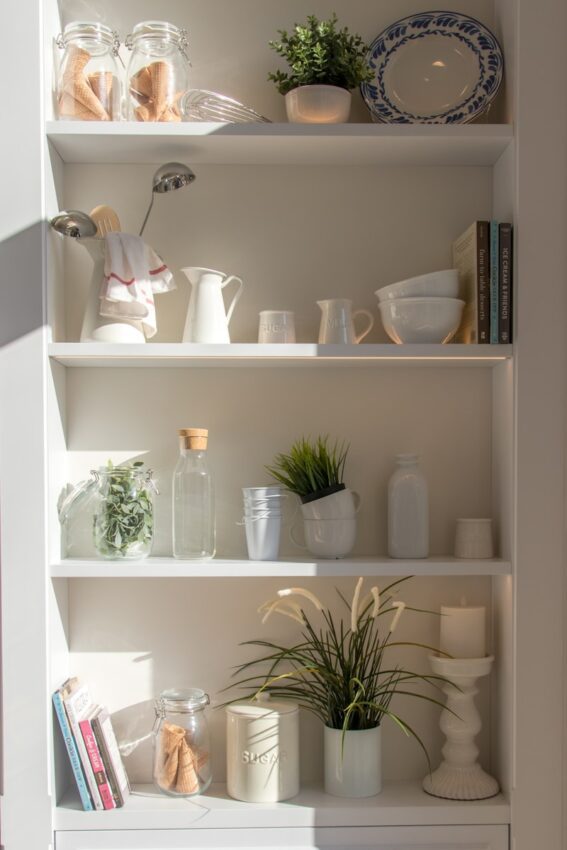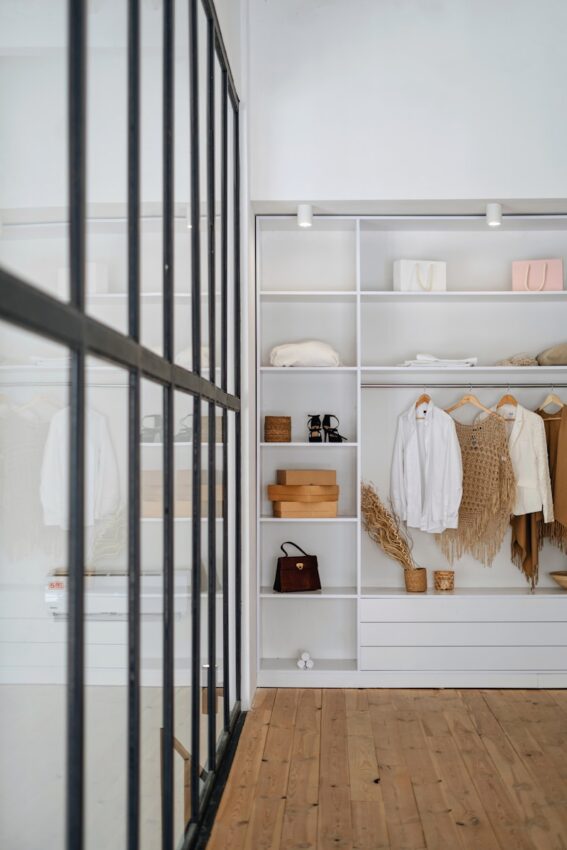Clutter makes you nervous, less functional, and it can affect your quality time in the house. That is why decluttering gives you such a good feeling, like freedom. But when there is chaos everywhere, from blocked hallways to dining tables covered in piles, you’re left stunned, and you don’t even know where to begin.

A major cleanout might seem like a great weekend plan (especially if you’re into feng shui, Marie Kondo, and things like that), but when Monday comes, you can be left thinking, “What was I thinking to even begin something like that and plan to finish it in just two days?!”
To avoid these kinds of scenarios and post-declutter regret, motivation isn’t enough – you need a system/plan.
Here is how you can prep for a full decluttering weekend and finish it without creating an even bigger mess.
1. Set Clear Goals Before Touching Anything
Vague goals like “clean the garage” or “tackle the closets” never work. Defining what success looks like beforehand strengthens the stop sign and prevents burnout.
3 types of goals that actually work:
- Time-based goals: “Sort all drawers by 4 PM Saturday.”
- Volume-based goals: “Fill three donation boxes by Sunday.”
- Function-based goals: “Create clear space for folding desk.”
It would help if you put this in writing or maybe put it in a shared calendar. If others are involved in the home, then everyone should know what they are jumping into.

2. Choose Your Zones Strategically
Trying to get rid of clutter in every room in one weekend is a recipe for failure. The bigger bang for the buck is to get it done in 1-2 top zones.
Priority basis:
- Frequency of use – Work on those areas you use every day (think kitchen drawers, entryway closets).
- Clutter visibility – Look into places where clutter is always in plain view.
- Blockers – Clear spaces that are blocking the way for other projects.
Don’t start with sentimental zones. They’re a trap. Leave memory boxes, old photo bins, and keepsakes for a time when you can give them more thorough attention, otherwise, you’ll get stuck there with zero progress.
3. Prepare a Temporary Holding Zone
When you are pulling things out, one of the biggest mistakes is not preparing a space for those same things. If you don’t have a place to temporarily move those items, you’ll end up stepping over boxes and piles all weekend.
Here are some smart options for temporary holding:
|
Holding Zone |
Ideal For |
Notes |
|
Empty guest room |
Clothing, books, toys |
Keep clear paths and label everything |
|
Garage corner |
Tools, decor, sports gear |
Avoid items sensitive to temperature |
|
Covered outdoor space |
Furniture, large boxes |
Use tarps if exposed to the elements |
|
Portable storage unit |
Overflow from large cleanouts |
Useful for seasonal, bulky, or sentimental items |
External storage is especially handy during complex projects such as relocating, remodeling, and renovating. You can always use portable self storage buildings, which give you enough space for items that you don’t want to throw away, plus you can also use them as a place where you’ll stash anything bulky or seasonal belongings.
4. Implement a Simple Sorting System
When the time finally comes to start sorting, keep it simple. Use four simple categories:
- Keep – Items that you use regularly or love, or you are simply not willing to give away.
- Donate/Sell – Still useful, but you do not need it, like, for example, if you have two identical bowls, three similar cardigans, etc.
- Trash – Damaged, broken, or expired items that you are not going to use/wear.
- Relocate – Belongs in a different room or storage area.
Have these bins or boxes available before starting on any drawers. You don’t need the pressure that comes with forcing tough decisions on the spot. If something’s too hard to handle, set it aside for a moment and do something else or relax; come back to it later.
5. Build in Breaks and Wrap-Up Time
Energy dips will happen, especially on a multi-day clean. Plan 15-20 minute breaks every 90 minutes. Use this time to grab water, stretch, or even take a brief walk. Breaks prevent decision fatigue and make the process feel less overwhelming.
Most importantly, block off the final hour of your weekend for clean-up. Not more sorting, actual reset time. This is where you:
- Vacuum or wipe down cleared areas
- Move donation boxes to your drop-off point or vehicle
- Put tools or items used away in their place
- Make a note of any loose ends to be dealt with later
Without this final reset, the clutter only shifts rather than disappears.
Conclusion
Decluttering isn’t about a flawless after photo. It is about making your space function better for you. A weekend is plenty of time to make a dent, reset your surroundings, and restore a sense of calm, but only if you tackle it with a strategy.
Don’t try to do too much. Be realistic. And remember: everything you remove creates a little more space to breathe.
